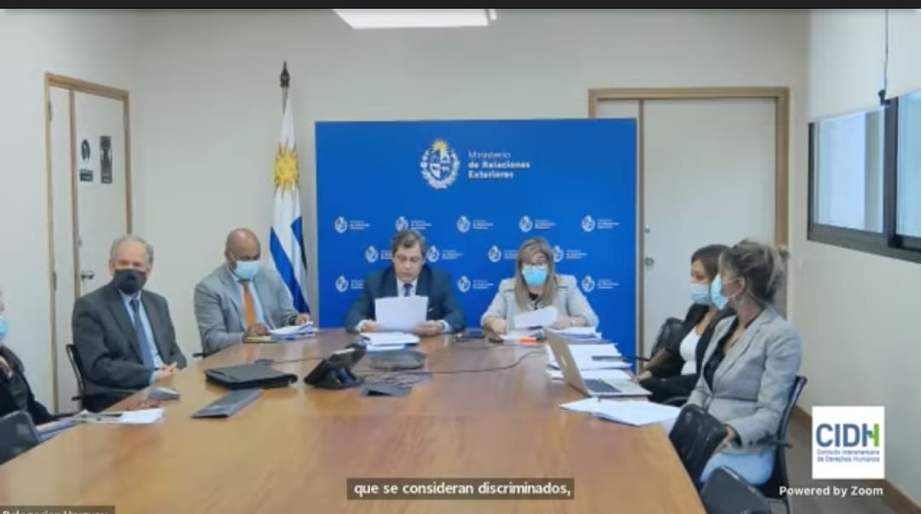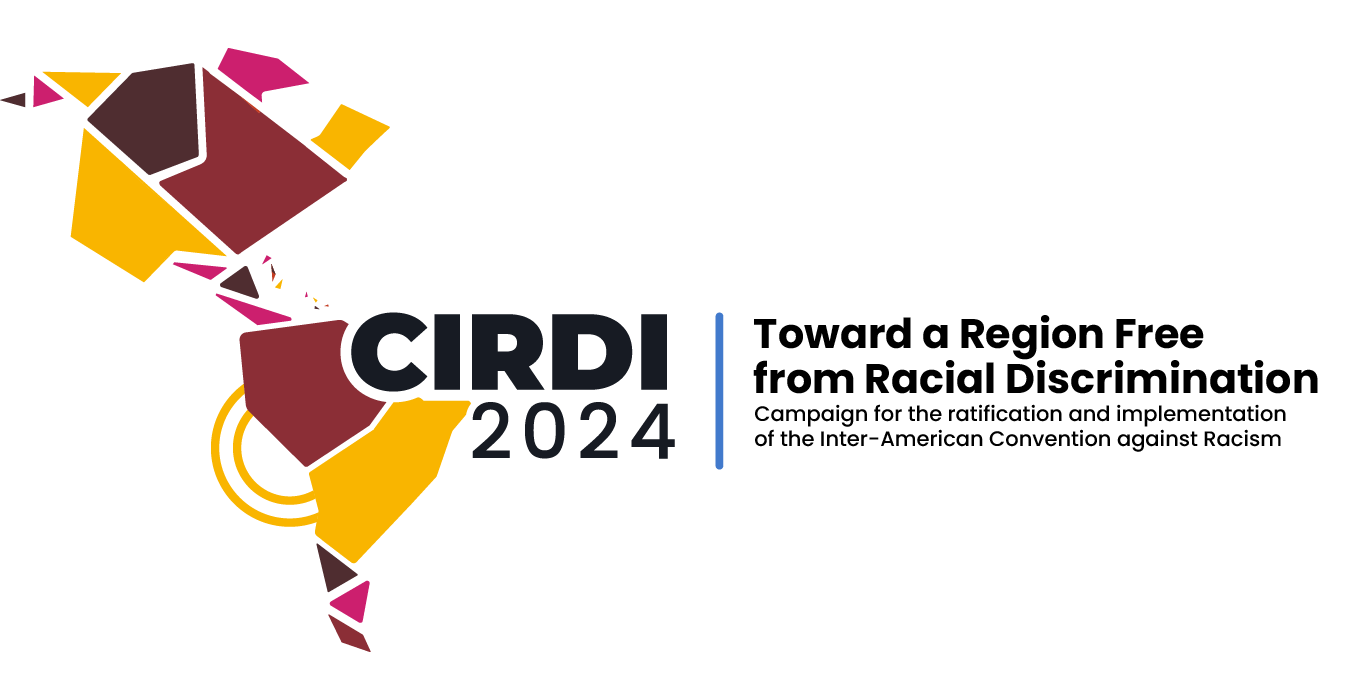 Although the Uruguayan State ratified the Inter-American Convention against Racism, Racial Discrimination and Related Forms of Intolerance (CIRDI), no major actions to date have been presented to certify that work is being done on its implementation or management.
Although the Uruguayan State ratified the Inter-American Convention against Racism, Racial Discrimination and Related Forms of Intolerance (CIRDI), no major actions to date have been presented to certify that work is being done on its implementation or management.
This statement came from the National Afro-Uruguayan Coordinating Committee, composed of Evelyn Ramos, Ramon Orlando Rivero, Noelia Maciel and Juan Pedro Machado during the first day of the 183rd session of thematic hearings held with the Inter-American Commission on Human Rights (IACHR), in which they presented some of the problems faced by the Afro-descendant communities in that country.
The members of the National Afro-Uruguayan Coordinating Committee recognized that the ratification of CIRDI is the right step to advance in the fight against all forms of discrimination and that it is a model that other States should follow. Among the actions they have already undertaken, they have found key elements to monitor and implement the contents of the Convention through Race and Equality’s “CIRDI 2024: Towards a Region Free of Racial Discrimination” campaign.
As noted by the commission before the IACHR, CIRDI creates a regional normative framework to establish a roadmap for reducing expressions of racism, racial discrimination and all related forms of intolerance affecting Afro-descendant populations in the Americas.
The lack of implementation of the CIRDI in Uruguay is aggravated by the fact that, as a consequence of the effects of the Covid-19 pandemic, the gaps and inequalities of Afro-descendant peoples in Latin America have deepened.
“This pandemic has aggravated the impact of racism, deteriorating our quality of life, impacting on a substantial increase in inequality, and even today, we walk through it without specific measures to mitigate the critical situation that the Afro-descendant population (native and immigrant) lives, and that we understand it is essential to begin to solve with a State present,” the commission mentioned during the hearing.
As the commission of the National Afro-Uruguayan Coordinating Committee explained, there are several factors affecting the Afro-descendant populations in that country, among them, the concentration of poverty in more than one fifth of the Afro community, and CIRDI would be the ideal instrument to make the necessary changes in Uruguay to benefit the Afro-Uruguayan and indigenous population of this country.
They are also concerned about the lack of implementation, dissemination and discussion of CIRDI within the State, linked to the development of strategies for working with ethnic populations. The delegation also acknowledged that it has had some contacts with representatives of the Ministry of Foreign Affairs to make progress in this regard. However, they pointed out that within the structure of the Uruguayan State there is no institution in charge of monitoring and complying with the Convention more than four (4) years after its ratification, as established in Article 13 of the Convention.
Carlos Quesada, Executive Director of Race and Equality, expressed his concern about the lack of implementation of CIRDI in Uruguay, especially when considering Article 4 of the Convention, which states that governments must eliminate all types of content and public messages that incite discrimination and racism.
The testimonies presented before this hearing highlighted that the lack of implementation generates negative effects for Uruguay’s ethnic groups, which is why it is essential to work on this Convention to fight racism and racial discrimination.
Likewise, the members of the commission of the National Afro-Uruguayan Coordinating Committee took advantage of the hearing before the IACHR to denounce situations that harm the dignity and rights of the Afro-Uruguayan population, and in which CIRDI would play a fundamental role to “achieve progress in key elements in the short term such as strengthening the capacity of the struggle for racial justice, improvement of statistical standards for the collection and use of disaggregated data, the development of public actions at the national level but especially in the departments with a greater presence of Afro-Uruguayan population”, they said.
At the end of their intervention, they requested the Uruguayan government to take actions to establish a roadmap for the implementation of CIRDI, through a process coordinated between different institutions and social actors, amongst other strategies.
Race and Equality will continue to focus on all actions and movements aimed at the effective implementation of the Inter-American Convention against Racism, Racial Discrimination and Related Forms of Intolerance in Uruguay, through spaces for dialogue and exchange, support and institutional strengthening, expert recommendations, among others.
See related texts:-
View the thematic hearing: http://youtube.com/ComisionIDH


